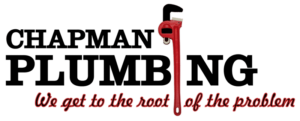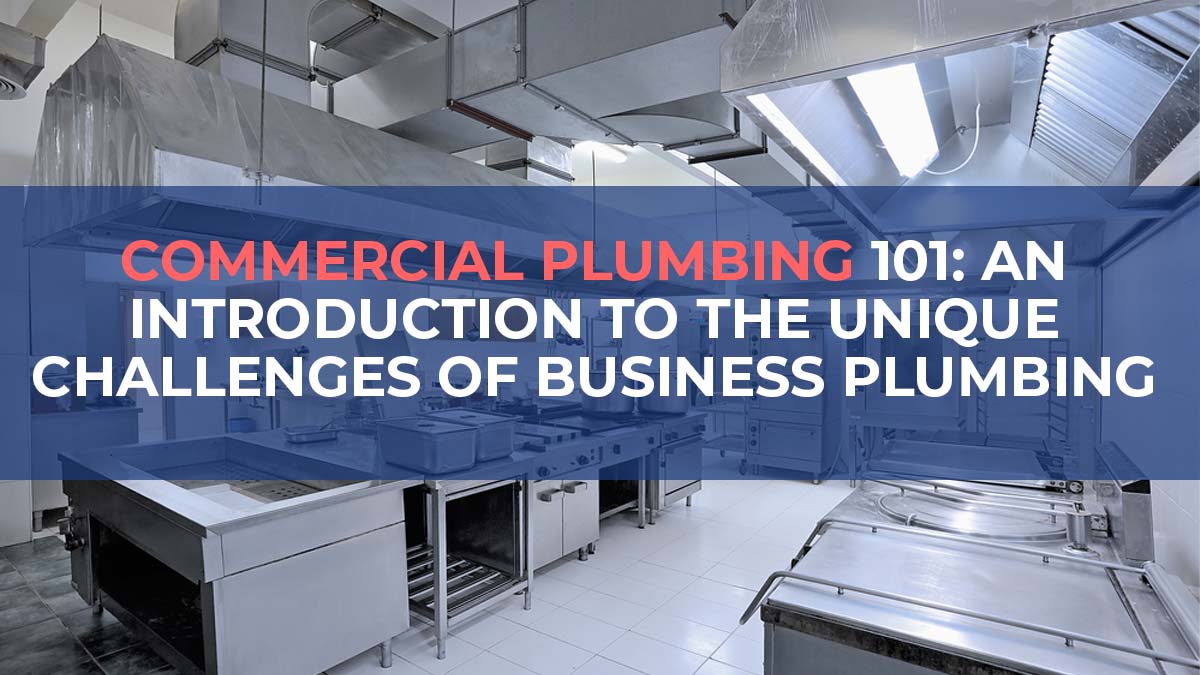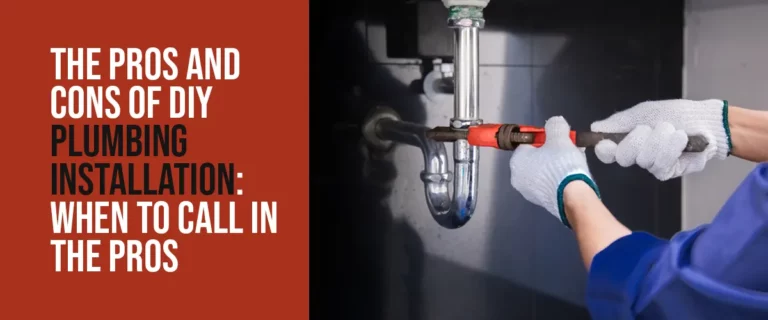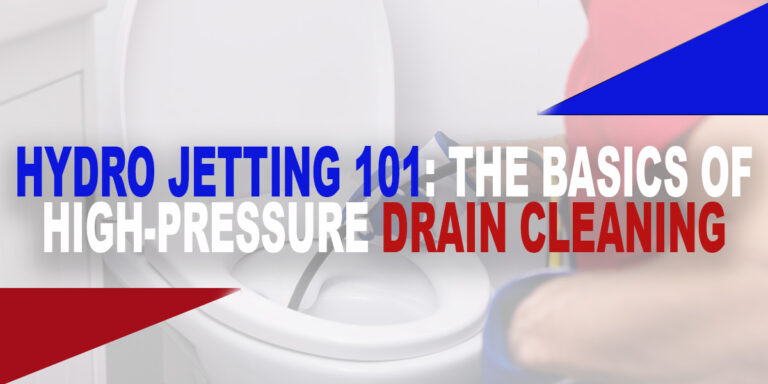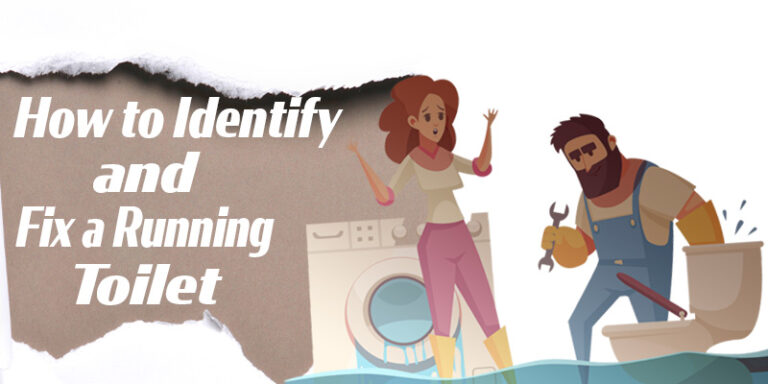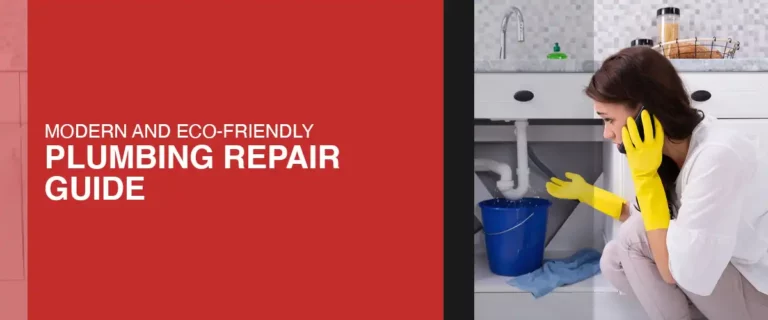Commercial Plumbing 101: An Introduction to the Unique Challenges of Business Plumbing
Commercial plumbing refers to systems in non-residential buildings such as offices, schools, hospitals, and retail stores. It is an essential aspect of any commercial building and plays a crucial role in the smooth operation of a business. It has unique challenges that are different from residential plumbing. This article will highlight the unique challenges of common plumbing issues in business spaces and how to solve them.
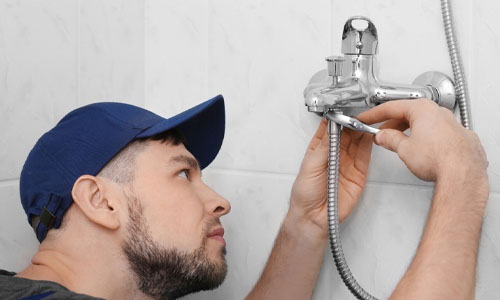
Unique Challenges of Business Plumbing
Managing the plumbing needs of commercial establishments presents a distinct set of challenges that set it apart from residential plumbing. Successfully navigating these unique challenges is crucial for maintaining plumbing systems’ functionality, safety, and efficiency in commercial establishments. These challenges include the following:
a. Higher demand for water usage
Commercial buildings have a higher demand for water usage than residential buildings. This increased demand requires a more complex plumbing system to handle the load.
b. More complex plumbing systems
The plumbing systems in commercial establishments are typically more intricate than in residential buildings. They have larger pipes, multiple floors, and more fixtures. This complexity requires a commercial plumber to have specialized knowledge and experience handling these systems.
c. Safety concerns
Designers must keep safety in mind while designing plumbing systems. There are many safety concerns, such as preventing scalding water temperatures, ensuring proper ventilation, and preventing the release of harmful chemicals.
d. Compliance with building codes and regulations
Plumbing systems must comply with building codes and regulations. These codes and regulations ensure that the plumbing system is safe and meets the specific needs of the building.
e. Impact of plumbing issues on business operations
Plumbing problems can disrupt corporate operations significantly. They can disrupt business activities, cause damage to the building, and even pose a health risk to employees and customers.
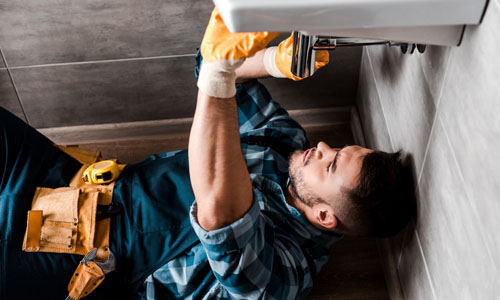
Common Commercial Plumbing Issues
Commercial buildings often encounter various plumbing issues that can disrupt business operations, pose health risks, and cause significant damage to the building. Below are the typical commercial plumbing issues, their potential consequences, and the necessary steps to address and prevent them:
a. Clogged drains and toilets
Clogged drains and toilets are standard in commercial buildings due to the increased usage of toilets and sinks. These issues can cause water damage and pose a health risk to employees and customers.
b. Leaks and water damage
Leaks can cause significant damage to a building, including structural damage and mold growth. They can also cause water damage to floors, walls, and ceilings.
c. Sewer line problems
Sewer line issues can produce unpleasant odors and endanger the health of staff and consumers. They can also cause damage to the building and disrupt business operations.
d. Backflow prevention
Backflow prevention is essential to prevent the building’s water supply contamination. You must install backflow prevention devices and maintain them regularly to ensure they function correctly.
e. Grease traps and interceptors
Grease traps and interceptors are essential in commercial kitchens to prevent grease from entering the plumbing system. You must clean them regularly to ensure that they are functioning correctly.
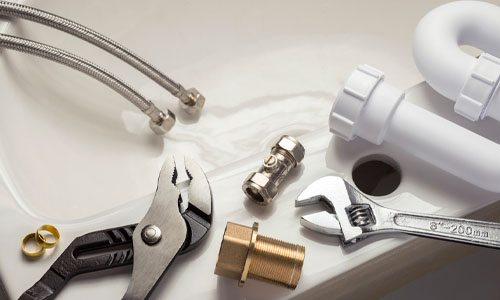
Tips for Maintaining Commercial Plumbing
Maintaining the health and functionality of commercial plumbing systems is crucial for the smooth operation of businesses. Companies can ensure their plumbing infrastructure’s longevity and optimal performance by following a few essential tips. Here are some recommendations for maintaining commercial plumbing and discussing their benefits for businesses:
a. Regular inspections and maintenance
Regular inspections and maintenance are crucial to maintaining systems’ optimal performance. Routine inspections enable you to detect problems early and perform timely maintenance and repairs, preventing them from developing into more critical issues. Furthermore, providing proper care can help prolong the lifespan of plumbing fixtures and prevent major repairs that could be costly. Therefore, businesses must prioritize frequent inspections and maintenance to preserve the long-term health of commercial plumbing systems.
b. Training employees on proper usage.
The employer must train employees to use plumbing fixtures properly to prevent misuse and potential damage to the plumbing system. Clear guidelines on using plumbing fixtures and what not to flush down the drain are essential.
c. Upgrading to water-efficient fixtures
Upgrading to water-efficient fixtures can help reduce water usage and lower water bills. Water-efficient fixtures, such as low-flow toilets and faucets, use less water while maintaining effectiveness because manufacturers design them that way. Upgrading these fixtures can also help reduce the environmental effect of water usage.
d. Promptly addressing plumbing issues.
Promptly addressing plumbing issues can help prevent them from becoming more significant problems. Minor plumbing concerns, such as a leaking faucet or clogged drain, can soon evolve into more critical points, disrupting company operations and necessitating costly repairs.

Hire a Reliable Commercial Plumber
Working with a qualified and experienced commercial plumber is essential for your business’s plumbing needs. Hiring the right plumber may save you time, money, and hassles in the long run while also assuring the safety of your plumbing system. Below are helpful tips so you can hire the right man for the job:
a. Factors to consider when choosing a commercial plumber
When choosing a commercial plumber, several factors should be considered, including experience, reputation, license, insurance, and availability. Experience is critical since these systems are complex and require specialized knowledge. A good reputation and a valid permit also indicate quality artistry and adherence to industry standards. Insurance is necessary to safeguard the company from any liability resulting from work-related incidents.
b. Importance of hiring a licensed and experienced professional
It is vital to highlight that licensed professionals have undergone the relevant training and tests. It proves they possess the necessary knowledge and abilities to operate plumbing systems. Furthermore, experienced individuals have worked on many methodologies and can rapidly detect and fix problems. As a result, choosing qualified and experienced specialists is critical to ensuring successful and speedy plumbing problem resolution.
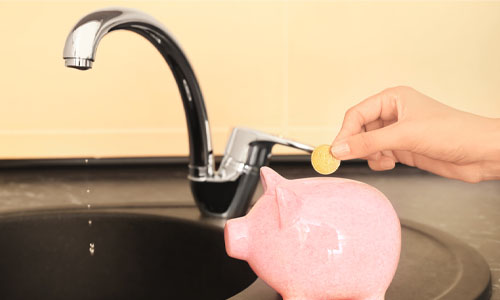
Investing in Good Plumbing: Long Game Cutting Utility Costs
In summary, commercial plumbing is critical for the smooth operation of businesses, and its unique challenges require specialized knowledge and skills. Additionally, regular inspections and maintenance, training employees on proper usage, upgrading to water-efficient fixtures, and promptly addressing plumbing issues are crucial in maintaining plumbing procedures. When hiring a commercial plumber, it is essential to consider factors such as experience, reputation, license, insurance, and availability. Businesses can avoid costly repairs and disruptions to business operations by prioritizing plumbing maintenance and repairs.
